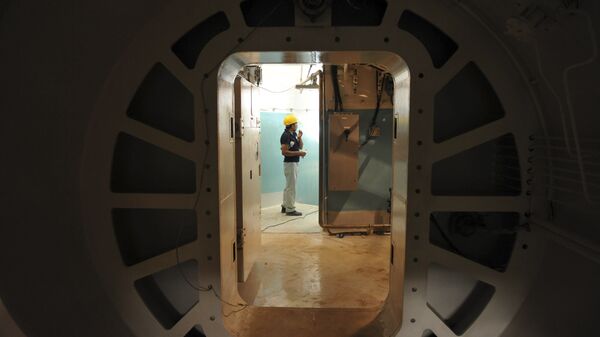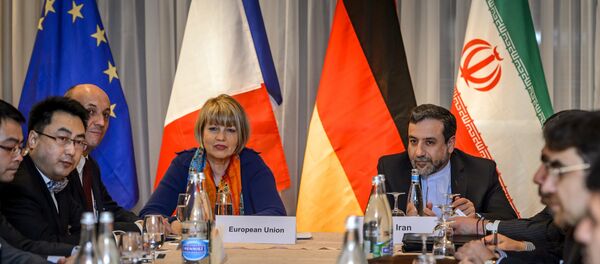MOSCOW (Sputnik), Ksenia Shakalova — The nuclear deal between Iran and a number of world powers is a very "important aspect" for the Treaty on the Non-Proliferation of Nuclear Weapons (NPT) and any changes to it would "have an impact" on it, Henk Cor Van der Kwast said on the sidelines of the Moscow Nonproliferation Conference.
The official stressed that the deterioration of the situation around the Joint Comprehensive Plan of Actions (JCPOA) could impact the Treaty. However, he added that at the moment it was too early to comment on the issue.
READ MORE: Iran's Supreme Leader Vows a Strong Response to Attempts to Derail JCPOA
The nuclear deal implies that after Iran fulfills its obligations the country will still be able to develop its nuclear program but in the peaceful framework. NPT is most often referred to as an international agreement which prevents countries from acquiring nuclear weapons. However, its aim is also to promote a peaceful use of nuclear energy with parties to the Treaty contributing to this goal. Thus the effective implementation of the JCPOA would enable Iran to enjoy its right of using nuclear energy for peaceful purposes under the NPT.
The NPT came into effect in 1970 with the aim of preventing the spread of nukes and has been ratified by 190 governments. It recognizes five states as nuclear powers: China, France, Russia, the United States and the United Kingdom. India, Israel, and Pakistan have not signed the treaty, while North Korea withdrew from it in 2003.
READ MORE: Recent Nuclear Bomb Test Shows US Disregards NPT Treaty — NGO Head
Every five years parties to the NPT summon a conference in order to review the implementation of the Treaty. According to the United Nations, the PREPCOM is responsible for addressing the NPT-related issues.



